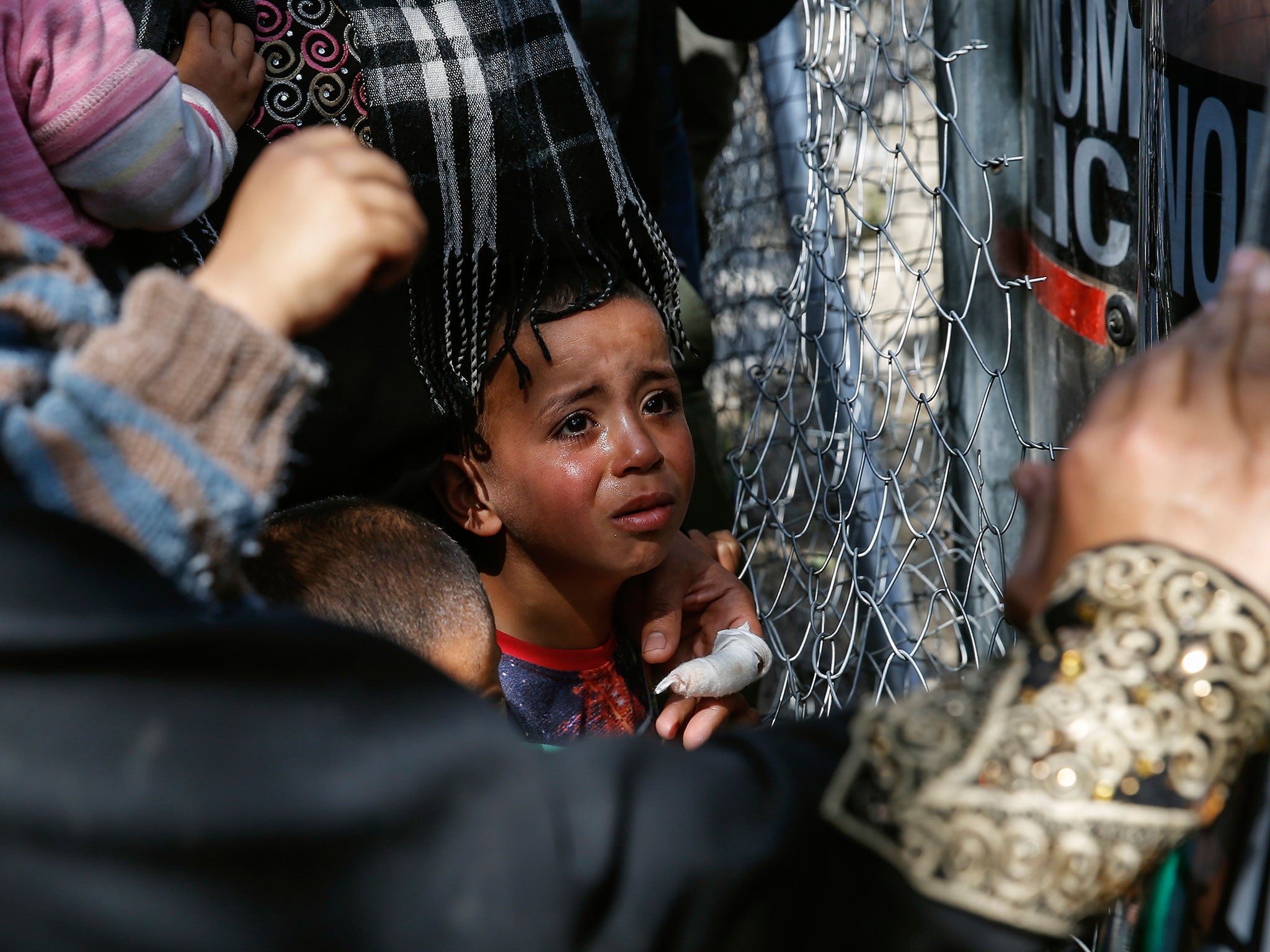There are no quick fixes for the refugee crisis in Europe
Syria faces years of rebuilding before displaced citizens can return to their homes

It is inevitable that public and political discourse in the UK should currently be focussed on the upcoming EU referendum. All the talk is of the possibility that we may soon leave Europe. Ironically, on other side of the continent, tens of thousands of refugees remain desperate to find a way in.
In the first three months of the year, refugees and migrants were arriving in Greece at the rate of nearly a thousand a day, according to the Greek authorities. Another 25,000 or so have reached Italy from North Africa. As spring turns to summer, as seas calm, the numbers are expected to rise.
And for all the thousands making the journey successfully, hundreds are still dying en route – drowning in the middle of the Mediterranean or the open waters of the Aegean: the name of their watery grave little matters to the victims of these seas. Last week up to 500 people were killed when a boat capsized north of the Libyan coast. That all this should be happening in the spring of 2016 tells a bitter truth: the refugee crisis which made headline after headline last year is still very much ongoing.
Politicians have tried to talk up their achievements. On Thursday, the UK government announced it was to take up to 3,000 of the most vulnerable child refugees, in addition to the 20,000 refugees it had already agreed to resettle. But none of those 3,000 will be drawn from children already in Europe, many of whom are living in treacherous conditions in more or less makeshift camps. And in any event, Britain’s agreement takes us up to 2020 – it is, in reality, a drop in a corpse-strewn ocean.
In mainland Europe hearts have hardened. Last autumn Angela Merkel flew the flag for liberal policy-makers and indicated that there would be no limit to the number of refugees Germany would accept. There may have been an economic imperative at play as well, but nonetheless the German approach seemed hearteningly commendable. Yet as time has passed the policy has compromised Mrs Merkel’s popularity both at home and abroad.
Governments in countries to Germany’s south-east, angered by a unilateral policy which they believed would encourage the flow of people, one by one closed borders as 2015 drew to a close. Earlier this month, Austria threatened to close the Brenner pass, one of the Alps’ main crossing routes, if Italy did not stem the numbers of migrants heading north from Italian arrival zones.
Meanwhile, efforts by the European Union to formulate a common policy have foundered. Quotas were voted through last year, though Britain opted out and several member states in eastern Europe objected. Sure enough, nations which were always unsympathetic to the plan have simply not put it into practice. More shamefully, those in the north and west of the continent, which pushed for the measure, have largely failed to enact it too. By the beginning of last month, of the 160,000 asylum seekers which the EU had agreed to allocate around the bloc, just a few hundred had officially been granted refuge. And lest it be forgotten, the figure under discussion in the quota system is but a fraction of the total number of migrants which have made their way to Europe – well over a million have arrived since the beginning of 2015.
Seemingly in despair at its own failings, the EU struck a deal with Turkey this year, offering money and a glimpse of future EU membership in return for taking back refugees and migrants who make land on the Greek islands. It was the kind of back stairs agreement which was bound to provoke criticism; and campaign groups have been swift to condemn the system’s lack of transparency and humanity.
If there is a glimmer of hope it is that the civil war in Syria has been less ferocious since a truce came into force at the end of February, although there have been reports of renewed fighting in recent days. The advance of Isis has been halted at least and it appears not to be the fighting force it was a year ago. Even so, peace and stability in Syria cannot be easily reasserted – and even when they come, the country faces years of rebuilding before displaced citizens can return to their homes. Putting to one side refugees in Europe, there are close to 5 million Syrian refugees in Lebanon and other neighbouring countries, while more than 6 million more have been displaced internally. Quick fixes are not on the agenda.
There can be little doubt that the collapse of Syria, and the refugee crisis stemming from the conflicts there and in Iraq, represent one of the modern world’s greatest failures. When little Aylan Kurdi died on a Turkish beach last September it felt for a moment that things would change, solutions would be found. How sickeningly wrong that has turned out to be.

Join our commenting forum
Join thought-provoking conversations, follow other Independent readers and see their replies